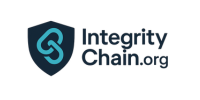Payroll and HR Fraud in Startups: How Ghost Employees Can Haunt a Startup’s Future
If you’re a founder or executive, understanding how payroll fraud works—and why whistleblowers are critical in exposing it—is key to safeguarding your culture, cash, and credibility.

Startups often pride themselves on having lean teams, agile operations, and efficiently burning capital. However, when payroll and HR fraud infiltrates—especially in high-growth environments—it can quietly drain resources, inflate headcount, and erode investor confidence. From ghost employees to falsified timesheets, these issues may go unnoticed for months, if not years, unless someone blows the whistle.
If you’re a founder or executive, understanding how payroll fraud works—and why whistleblowers are critical in exposing it—is key to safeguarding your culture, cash, and credibility.
What Is Payroll and HR Fraud?
Payroll and HR fraud refers to manipulations within employee compensation systems. Common startup-specific forms include:
- Ghost employees: Non-existent staff (or former employees still on payroll) whose salaries are collected by someone else.
- Falsified timesheets: Contractors or remote workers logging unverified hours.
- Inflated commissions: Sales staff overstating deal values or backdating agreements to trigger bonuses.
- Nepotism and conflict of interest: Hiring unqualified friends or family without disclosure, often at inflated salaries.
- Unauthorized raises or bonuses: HR or finance insiders approving payments outside official review processes.
While these may sound like big-company problems, they’re more likely to go undetected in startups, where payroll systems are just one or two people handle informal and multiple roles.
Why Startups Are Vulnerable?
Startups are especially prone to payroll fraud for several reasons:
- Fast hiring during scale-up phases
- Remote and international teams, making verification harder
- Founders delegating HR or payroll to junior staff without checks
- No formal separation of duties between hiring, timesheet verification, and payroll execution
- Low audit scrutiny before Series B or acquisition
Add in hybrid teams, equity-linked compensation, and outsourced HR vendors—and it becomes harder to know who’s getting paid for what.
Real Startup Examples
Here are just a few anonymized examples based on real-world whistleblower reports:
- A tech startup in Singapore had two ghost employees on the dev team for over nine months. The co-founder who hired them routed their salaries to a personal account. The fraud was only discovered after an investor-requested headcount audit.
- At a Series A U.S. fintech company, a remote contractor was billing 160 hours/month across two roles—one as a designer and one as a UX researcher. The person had outsourced both jobs to Fiverr and pocketed the difference.
- In an edtech startup in Bangalore, a regional manager was hiring friends as “field reps”, who never showed up for work. When a new HR analyst noticed high attrition in payroll records but no resignation letters, they raised the flag.
In each case, the fraud could have continued if not for a whistleblower—often a junior HR, finance, or operations staffer—flagging something that didn’t feel right.
Red Flags Founders Should Watch For
- Employees on payroll with no direct manager or Slack/email presence
- Inconsistent timesheets, especially from overseas or remote workers
- High payroll spend with low team visibility (e.g., many names no one has heard of)
- One person in charge of hiring, HR records, and payroll processing
- Raises or bonuses granted outside review cycles
If you notice any of these, it’s time to dig deeper—not assume it’s just startup chaos.
The Role of Whistleblowers in Payroll Fraud
Whistleblowers in HR or finance roles are often the first to detect discrepancies. They may see:
- Bank accounts for multiple employees sharing a last name
- Rehires processed without explanation
- “Employees” who never onboarded, appeared on Zoom, or had work output
The problem? Many startups don’t have formal reporting channels—or worse, they retaliate. If your company culture discourages transparency, whistleblowers may bypass internal channels and report directly to investors, auditors, or even labor authorities.
How to Prevent Payroll and HR Fraud
- Implement approval workflows
Ensure multiple people sign off on new hires, bonuses, and pay changes. - Regular payroll reconciliation
Review payroll records monthly with someone independent from HR and accounting. - Audit contractor hours quarterly
Especially for high-burn departments (like engineering or design). - Automate headcount tracking
Use HR software that integrates with communication tools (Slack, email, etc.) to validate active users. - Verify all remote hires
Conduct onboarding calls, collect IDs, and ensure documentation matches known data points. - Anonymous reporting system
Let staff flag ghost employees or suspicious payments without fear of retaliation.
What to Do If You Discover Payroll Fraud
If you're a founder or CXO and someone reports payroll fraud internally:
- Pause payroll disbursements to the suspected individuals
- Preserve all documents, especially onboarding, payment logs, and communications
- Engage your legal team or auditor—especially if multiple departments are involved
- Protect the whistleblower, especially if they came through proper internal channels
- Inform your board or investors if the scale is material
You don’t need a scandal to ruin your credibility. But ignoring internal concerns will almost guarantee one.
Final Thoughts
Founders often focus on how to raise capital or scale faster—but overlook how cash leaks through preventable internal fraud. Payroll and HR fraud may not dominate headlines, but it quietly kills morale, trust, and operational efficiency.
At the earliest stage, you may only have a few employees. But that’s exactly when to build systems that scale with transparency. Because once fraud takes root, it spreads quickly—and by the time a whistleblower flags it, the damage may already be done.
A great team is your biggest asset. Make sure you actually know who’s on it—and who’s profiting from pretending to be.



